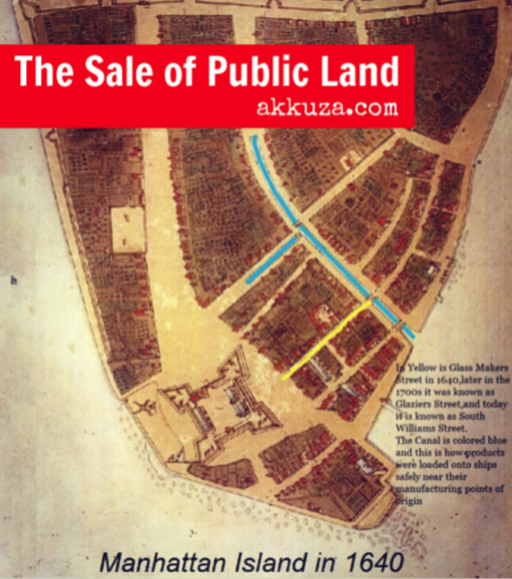
It’s 1626. A Dutch merchant has his eye on a peninsula of land in the region of the New World that the local natives (the Munsee/Lenape) called Manna-hatta (which literally means “the place for gathering wood to make the bows”). Place names tend to have this descriptive element in the local language – Żebbuġ. Għasri, Għajnsielem, Marsalforn. It’s the same the world over. Land is land and what it gives to the people who live on it.
According to a letter by Pieter Janszoon Schagen, Peter Minuit and Dutch colonists acquired the Manhattan peninsula on May 24, 1626, from unnamed Native American people, who are believed to have been Canarsee Indians of the Lenape in exchange for traded goods worth 60 guilders,
“The original inhabitants of the area were unfamiliar with the European notions and definitions of ownership rights. For the Indians, water, air and land could not be traded. Such exchanges would also be difficult in practical terms because many groups migrated between their summer and winter quarters. It can be concluded that both parties probably went home with totally different interpretations of the sales agreement.”
It gets interesting because it turns out that Minuit negotiated with the chief of the Canarsees, when it was the Weckquaesgeeks who actually mostly lived on Manhattan. It was an easy deal to obtain. The vendors would get the rights to a piece of land while the sellers… well the sellers had no concept of right to property and in any case they were nomadic people who actually had no real ties with that piece of land… at least not as much as another tribe who was not involved in the transaction.
Public land – land that belongs to the people. It forms part of the core concept of public goods (res publica). In roman law it was the concept of a good publicly held in common by the people. Res publica also refers to public affairs, affairs relating to the management of the common good. When public land is sold or managed, such sale or management is supposed to be transacted in the interest of the people and their common good.
Modern day republics entrust their governments with the management of public good. That is why transactions involving public land should be conducted with the utmost transparency and no amount of excuses of “commerical sensitivity” can hold water. Transparency is but one safeguard. Accountability to parliament, to watchdogs and to EU institutions is another. The sale of public land – when it is really necessary and justified must take place following the best standards that guarantee the public good is the foremost concern.
When the citizens of the nation fail to understand the importance of the monitoring of such processes then they are open to being conned time and time again by the next Peter Minuit. The tribal leaders of today’s demos who take advantage of this ignorance have little care of the consequences of their transactions. The trinkets and guilders of yesteryear have been transformed in the corrupt practices of today.
Oh foolish nation that allows itself to be led by jackals. The situation is desperate, there are crooks everywhere.
“quotus quisque reliquus qui rem publicam vidisset?
Igitur verso civitatis statu nihil usquam prisci et integri moris: omnes exuta aequalitate iussa principis aspectare…”
(How few were left who had seen the republic!
Thus the State had been revolutionised, and there was not a vestige left of the old sound morality. Stript of equality, all looked up to the commands of a sovereign…) – Tacitus, Annals (I, 3-4)

